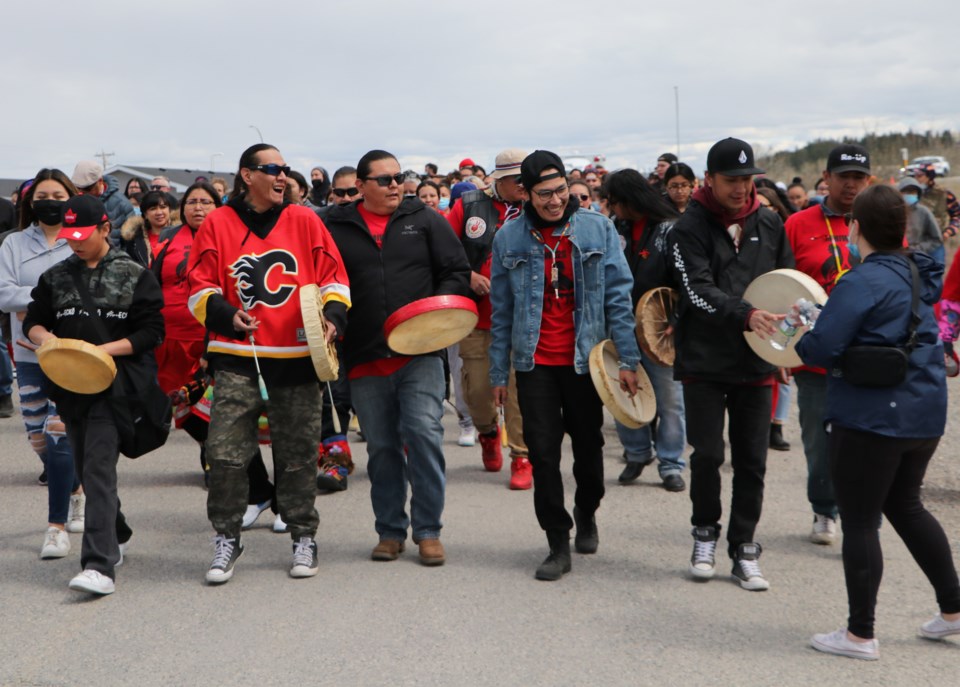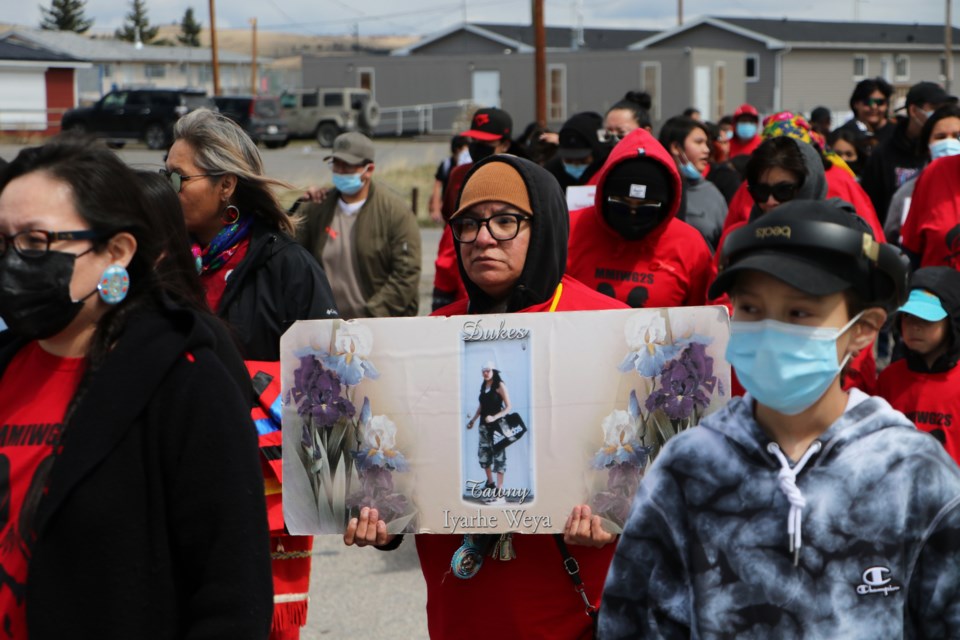The streets of Morley were awash with red May 11, as Stoney Nakoda First Nation and many of its allies marched to remember Missing and Murdered Indigenous Women, Girls and Two-Spirit (MMIWG2S) people across the country.
The emotional march, organized by Stoney Health Services' Mînî Thnî Crisis Support team, was initially set to coincide with Red Dress Day on May 5, but was postponed due to the death of an elder in the community.
"It's a lot of heartbreak, it's a lot of hurt – this day is for the men, women and girls that have gone missing and murdered," said crisis support community outreach liaison Alanna Kaquitts. "It's to bring awareness to the issue and to remember and honour them and their families."
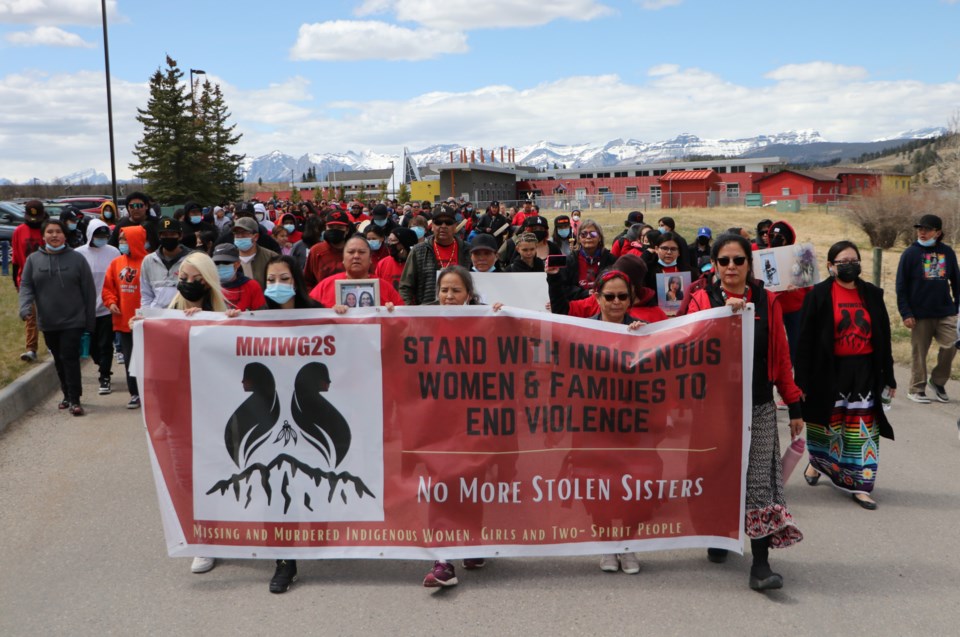
Kaquitts, not unlike many others in attendance, has lost a loved one to an act of violence or knows someone who has. She and her colleague Myrna Teegee, who also works with Mînî Thnî Crisis Support, have both recently lost relatives.
Carmelita Abraham, Teegee's cousin, was found dead in Quesnel, B.C. in the days following her reported disappearance earlier this year. Joseph Simpson, a Quesnel resident, was later arrested and charged by RCMP in relation to her suspected murder.
Closer to home on Stoney Nakoda First Nation, Kelly and Heather Poucette still mourn the loss of their young daughter, 23-year-old Keesha Crawler, whose body was found by Stoney Nakoda RCMP on the side of Highway 1A in April 2021.
Investigations by RCMP could not determine whether Crawler jumped, fell or was pushed from the vehicle driven by her boyfriend Bryan Kelrick House Junior. However, it was discovered that the young woman's body was put back inside the vehicle, then left on the side of the highway, where she died from her injuries before EMS could arrive.
Kelrick House Junior was charged with one count of criminal negligence causing death in relation to the incident.
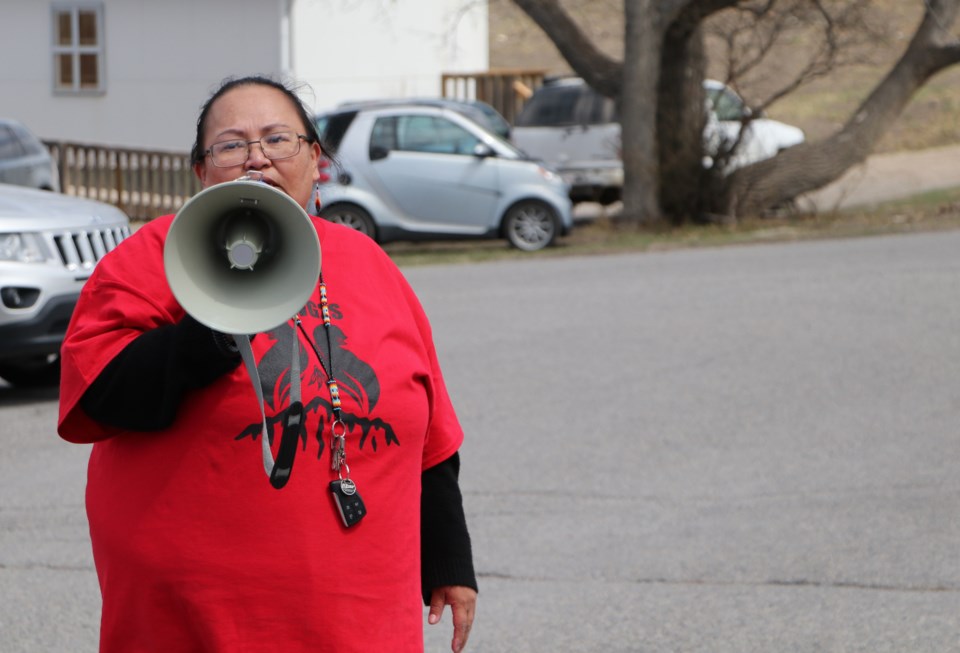
Crawler's mother said she feels the justice system is not holding the accused, who remains free from custody, accountable for his actions.
"The justice system needs to be revisited in how they handle Indigenous people when it comes to crimes such as this," said Poucette. "Somewhere, there has to be changes."
Poucette said she hopes the community throwing its weight behind the march and other events like it can help act as a wake-up call to leadership, both on the reserve and at higher levels of government.
"To see this amount of people is really encouraging," she said at the event. "Hopefully, chief and council will help us to make some changes on how the justice system handles Indigenous people."
Krista Hunter, a councillor with Wesley First Nation, joined the march after a Stoney Tribal council meeting. She said she was proud to see so much strength and resilience exhibited by the community.
"Despite all the trauma, the assimilation of our people – to see this community engage and be supportive and remember those lost loved ones is incredible. We're still here," said Hunter.
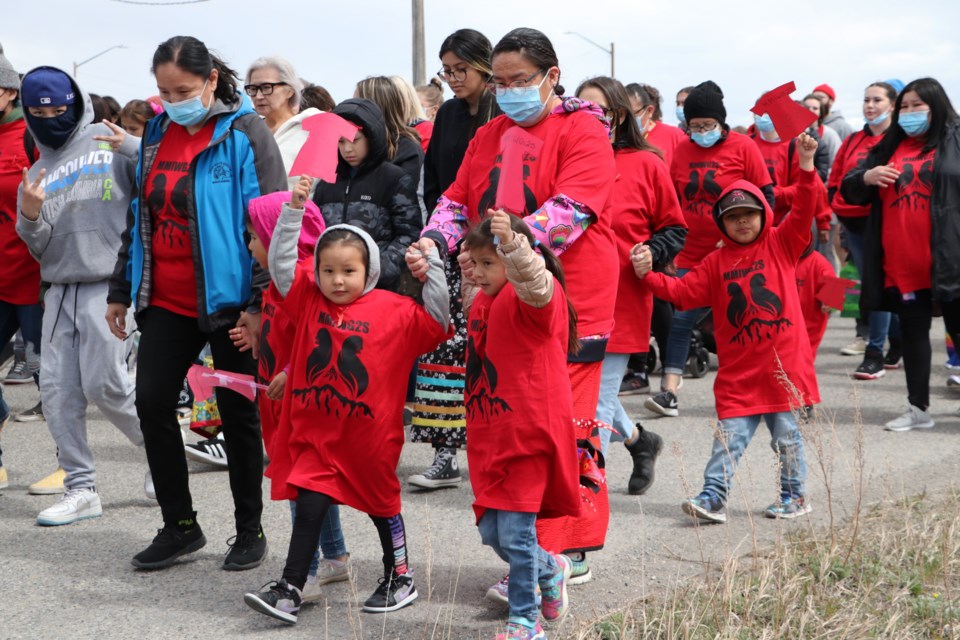
"And this time, our women aren't alone in rising up."
The march was attended by over 200 people and Hunter was joined by her sister, Lorraine. The two of them spoke of their nieces, Tonya and Chantelle Firingstoney. Chantelle was found deceased at a Ponoka residence she shared with her partner and children in November 2020.
Her partner, Ryan Jake Applegarth is charged with second-degree murder in connection to her killing and for failure to comply with a release order.
"We're a tight-knit community," said Kaquitts. "We're all related to each other in one way or another and when someone is murdered or someone is missing … the whole community's heart goes out to them.
"It affects each and every one of us in different ways. It's a hard topic because these individuals were just here with us, not too long ago."
